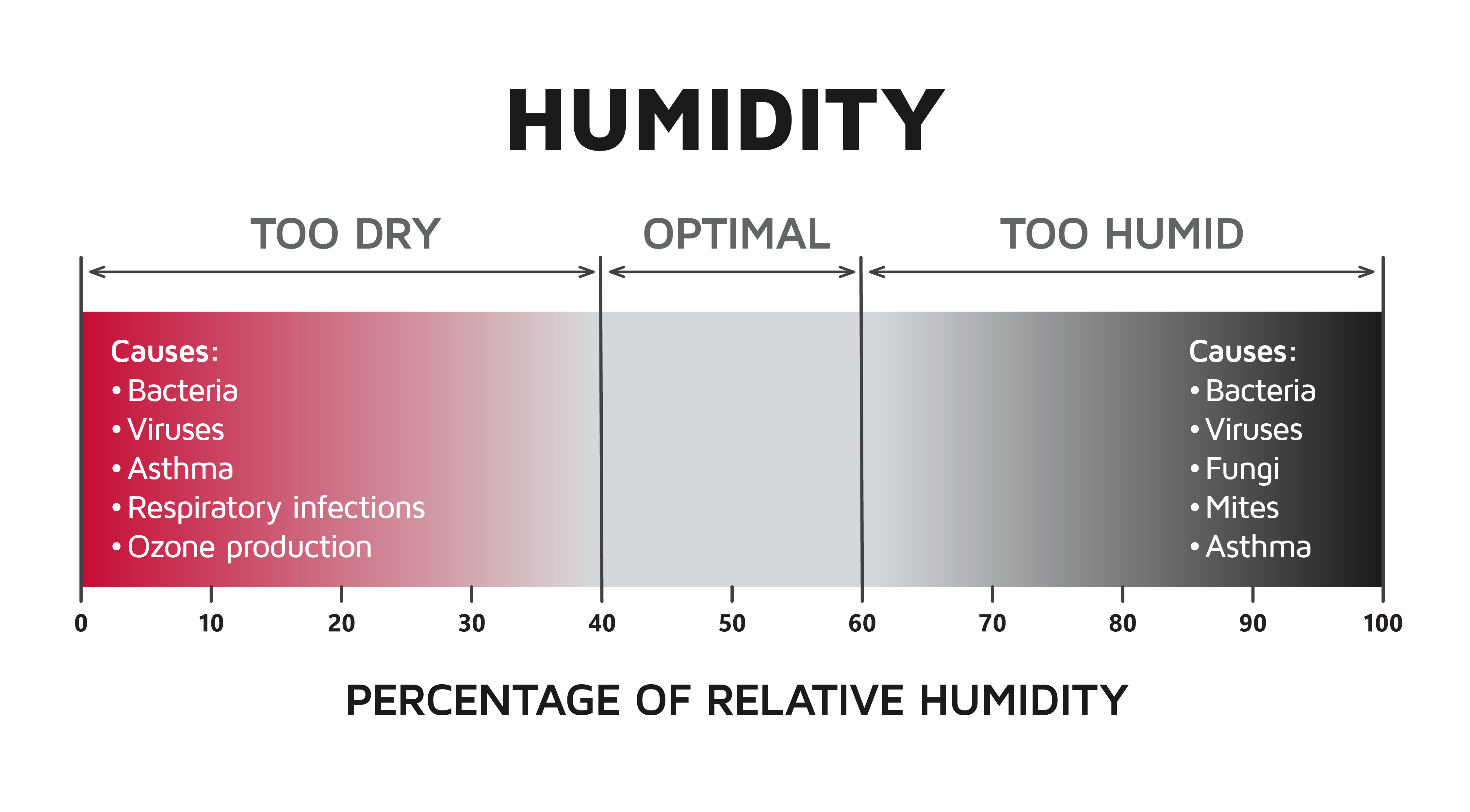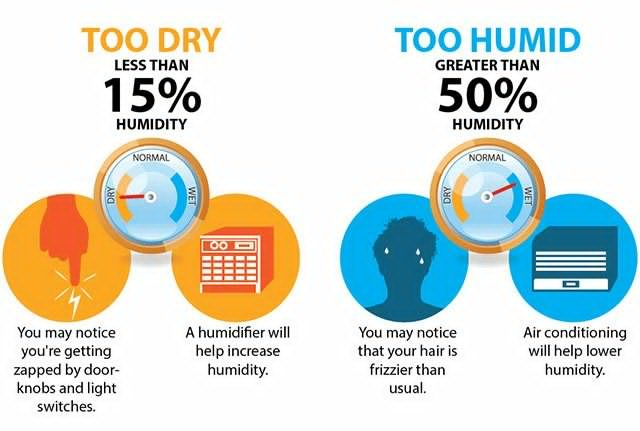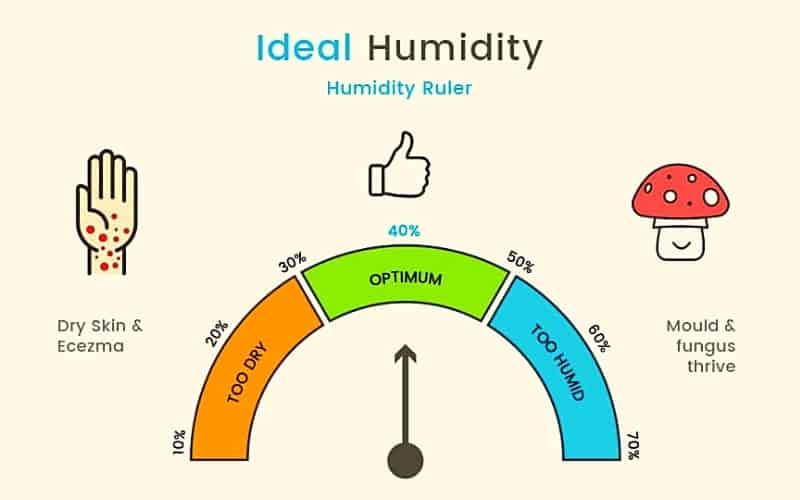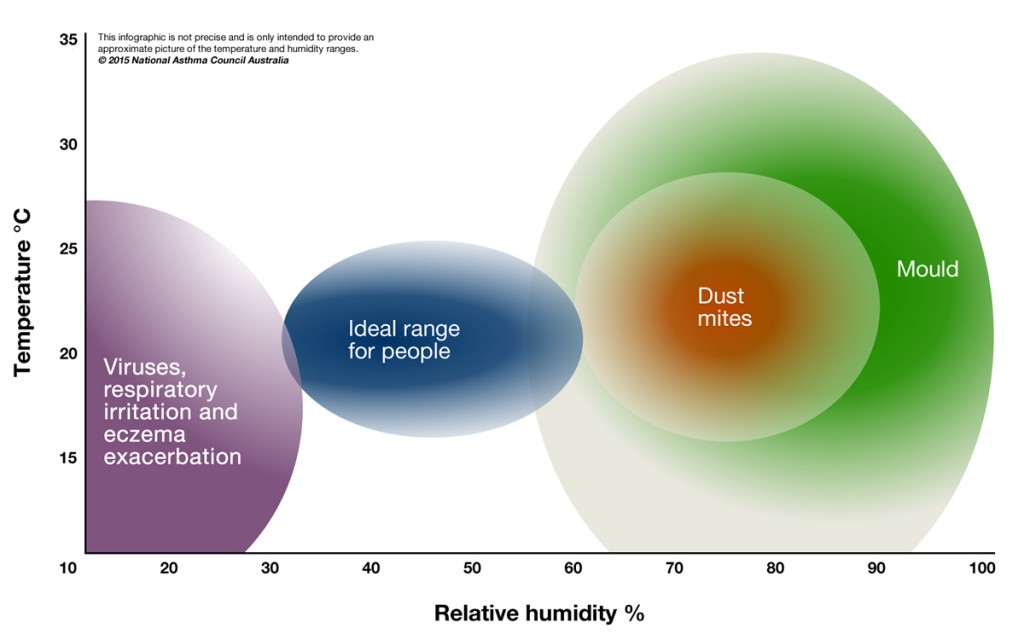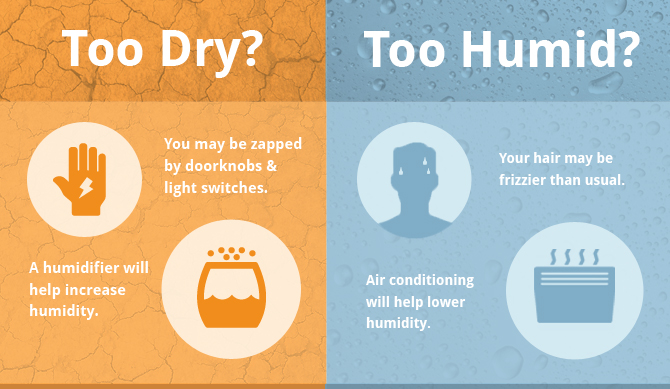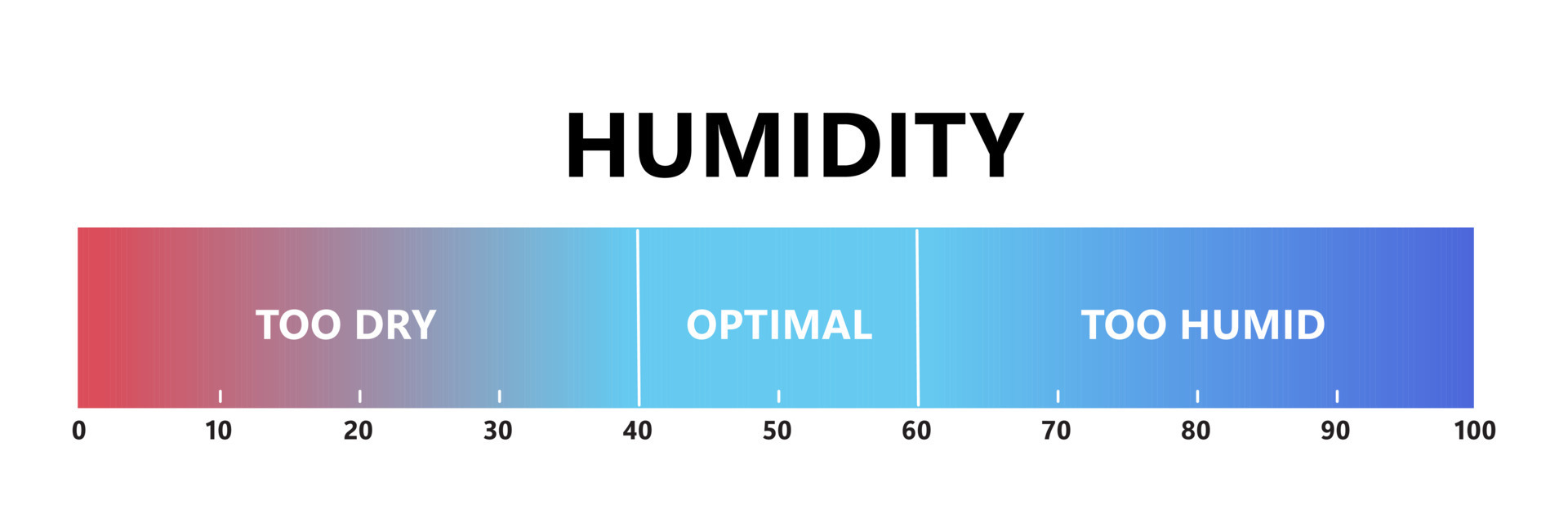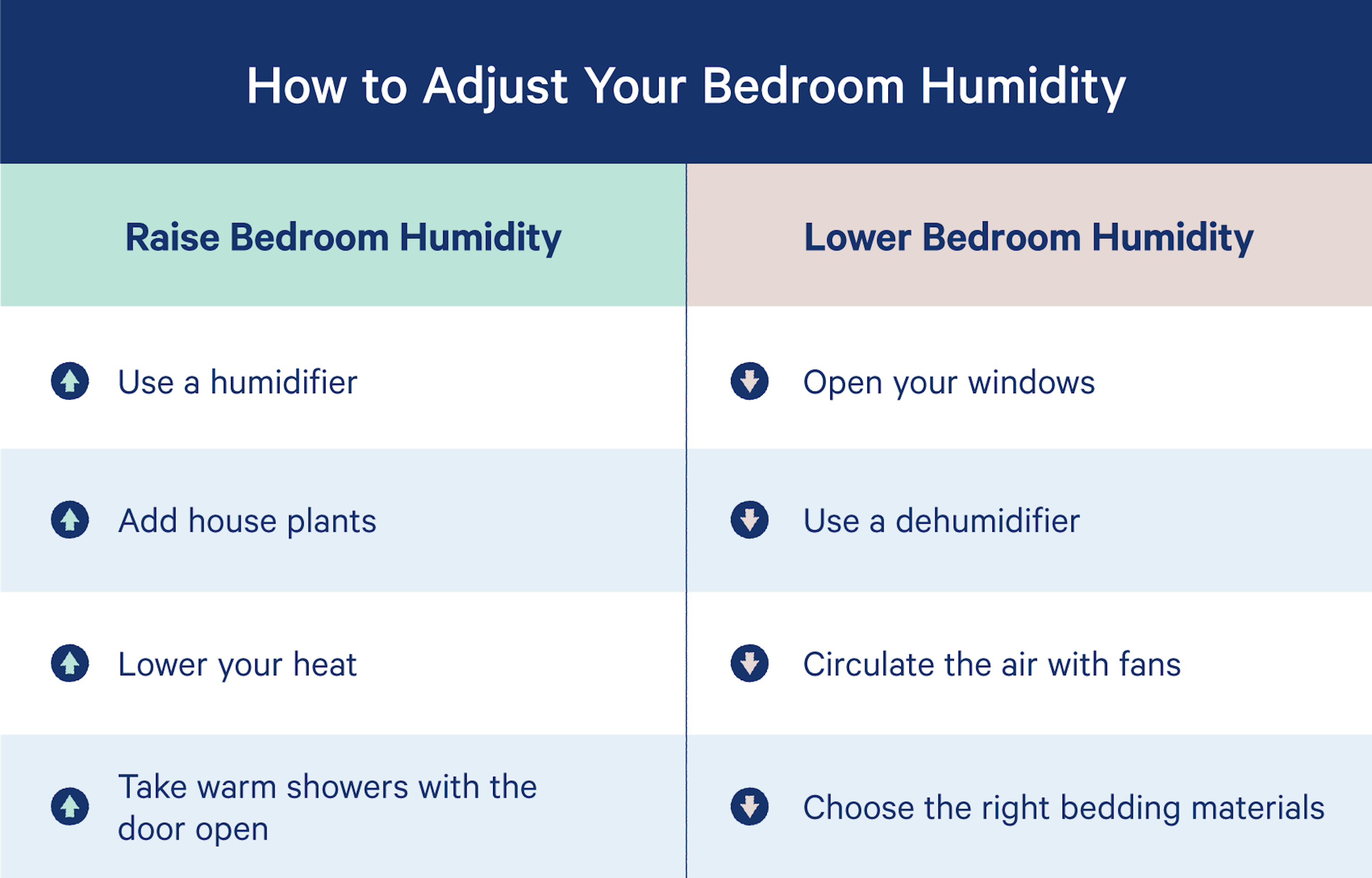What Is A Healthy Humidity For Your Home
.jpg?width=3508&name=Humidity level chart (1).jpg)
Maintaining a healthy humidity level in your home is crucial for comfort, health, and the longevity of your property. As an HVAC professional, understanding the science behind humidity and how to control it is a fundamental skill. This article delves into what constitutes healthy humidity, its impact, and how it connects to the HVAC industry, offering valuable insights for students, technicians, and employers alike.
Understanding Relative Humidity and Its Impact
Relative humidity (RH) is the amount of moisture in the air compared to the maximum amount the air could hold at a specific temperature. It's expressed as a percentage. For instance, 50% RH means the air is holding half the moisture it possibly could at that temperature.
Why is this important? Because humidity significantly impacts how we perceive temperature. High humidity makes the air feel hotter because it hinders sweat evaporation, our body’s natural cooling mechanism. Conversely, low humidity can make the air feel colder, leading to dry skin, chapped lips, and respiratory issues.
The Goldilocks Zone: Ideal Humidity Levels
The generally accepted range for healthy indoor humidity is between 30% and 50%. During the winter months, maintaining the lower end of this range (30-40%) is often preferable to prevent condensation on windows and potential mold growth. In the summer, aiming for the higher end (40-50%) can provide a comfortable balance without encouraging excessive moisture buildup.
Falling outside this range can have significant consequences:
- High Humidity (Above 50%): Creates a breeding ground for mold, mildew, and dust mites. Can exacerbate allergies and asthma. Leads to a clammy, uncomfortable feeling and potential structural damage to your home.
- Low Humidity (Below 30%): Causes dry skin, itchy eyes, and irritated respiratory passages. Can worsen symptoms of colds and flu. Damages wood furniture and floors, causing them to crack or warp. Increases static electricity.
HVAC Solutions for Humidity Control
The HVAC industry provides a range of solutions to maintain optimal humidity levels. Understanding these technologies is key for HVAC professionals.
Humidifiers: Adding Moisture to Dry Air
During winter, when heating systems dry out indoor air, humidifiers add moisture. There are several types, including:
- Central Humidifiers: Integrated with the HVAC system, humidifying the entire home.
- Portable Humidifiers: Designed for single rooms, offering more localized control.
- Bypass Humidifiers: Utilize the furnace blower to distribute moisture.
- Steam Humidifiers: Boil water to create steam, offering precise humidity control.
Dehumidifiers: Removing Excess Moisture
In humid climates or during the summer, dehumidifiers remove excess moisture. Like humidifiers, they come in various forms:
- Whole-House Dehumidifiers: Integrated with the HVAC system, dehumidifying the entire home.
- Portable Dehumidifiers: Designed for specific rooms or areas.
Air Conditioners: A Dual Role
While primarily designed for cooling, air conditioners also play a role in dehumidification. As air passes over the cooling coils, moisture condenses, reducing the humidity in the air.
Ventilation Systems: Balancing Airflow
Proper ventilation is crucial for maintaining healthy humidity levels. Exhaust fans in bathrooms and kitchens remove moisture generated from showers and cooking. Whole-house ventilation systems, like energy recovery ventilators (ERVs) and heat recovery ventilators (HRVs), exchange stale indoor air with fresh outdoor air while minimizing energy loss.
HVAC Career Paths and Humidity Control Expertise
Mastering humidity control opens doors to numerous career opportunities within the HVAC industry.
HVAC Technician: Installation, Maintenance, and Repair
HVAC technicians are responsible for installing, maintaining, and repairing humidifiers, dehumidifiers, air conditioners, and ventilation systems. They diagnose issues related to humidity levels and recommend appropriate solutions. The median annual wage for HVAC mechanics and installers was $51,390 in May 2021, according to the Bureau of Labor Statistics. Job outlook is projected to grow 5 percent from 2021 to 2031, about average for all occupations.
Example Career Path: Entry-level technician -> Senior Technician -> Service Manager
HVAC Sales and Design: Recommending the Right Solutions
Sales and design professionals work with clients to assess their needs and recommend appropriate HVAC systems, including humidity control solutions. They must understand the science behind humidity and be able to explain the benefits of different technologies. Earning potential varies based on experience and sales performance, but can easily exceed $75,000 annually.
Example Career Path: Sales Associate -> Sales Engineer -> Sales Manager
HVAC Engineer: Designing and Optimizing Systems
HVAC engineers design and optimize HVAC systems for residential, commercial, and industrial buildings. They consider factors such as climate, building design, and occupancy to ensure optimal comfort and energy efficiency, including humidity control. The median annual wage for mechanical engineers (which often includes HVAC engineers) was $95,300 in May 2021.
Example Career Path: Junior Engineer -> Senior Engineer -> Project Manager
Essential Certifications for HVAC Professionals
Obtaining relevant certifications enhances your credibility and demonstrates your expertise in the HVAC industry. Here are some key certifications:
NATE Certification
The North American Technician Excellence (NATE) certification is a widely recognized industry credential. NATE offers certifications in various specialties, including heating, air conditioning, and ventilation. Earning NATE certification demonstrates your competence in installing, maintaining, and repairing HVAC systems, including humidity control equipment.
EPA Section 608 Certification
The EPA Section 608 certification is required for technicians who handle refrigerants. This certification ensures that technicians understand proper refrigerant handling practices to protect the environment. It's a fundamental requirement for anyone working with air conditioning and refrigeration systems.
HVAC Excellence Certification
HVAC Excellence offers a range of certifications for HVAC technicians, covering various aspects of the industry, including installation, service, and troubleshooting. These certifications demonstrate a commitment to professional development and industry best practices.
The Future of Humidity Control in HVAC
The HVAC industry is constantly evolving, with new technologies and innovations emerging regularly. Here are some trends to watch in the area of humidity control:
Smart Home Integration
Smart home technology is becoming increasingly integrated with HVAC systems, allowing homeowners to monitor and control humidity levels remotely. Smart thermostats, sensors, and apps provide real-time data and automated adjustments, enhancing comfort and energy efficiency.
Energy-Efficient Dehumidification
Manufacturers are developing more energy-efficient dehumidifiers to reduce energy consumption and operating costs. These new dehumidifiers often incorporate advanced technologies such as variable-speed compressors and smart controls.
Advanced Filtration and Air Purification
Humidity control is increasingly integrated with air filtration and purification systems to provide comprehensive indoor air quality solutions. These systems remove pollutants, allergens, and odors, creating a healthier and more comfortable indoor environment.
Example: Imagine a homeowner using a smart thermostat that not only controls temperature but also monitors humidity levels. If the humidity rises above a certain threshold, the thermostat automatically activates the dehumidifier, preventing mold growth and maintaining optimal comfort.
Conclusion
Understanding and controlling humidity is a critical aspect of the HVAC industry. By mastering the science behind humidity, learning about available technologies, and pursuing relevant certifications, HVAC professionals can provide valuable services to homeowners and businesses. Whether you're a student, a seasoned technician, or an employer, investing in humidity control expertise is a smart move for a successful career in HVAC. The demand for skilled professionals who can address humidity issues effectively will only continue to grow as homeowners become more aware of the importance of indoor air quality and energy efficiency. This knowledge ensures healthier, more comfortable living spaces, solidifying your role as a vital contributor to the community.
